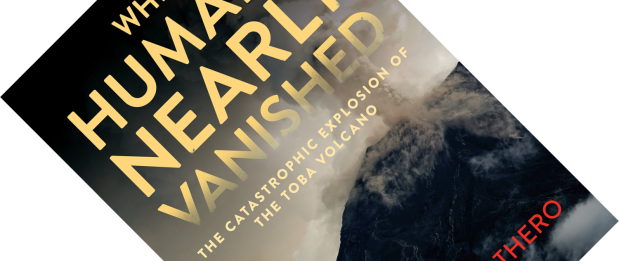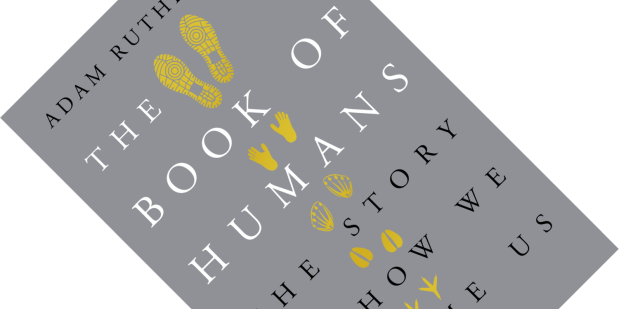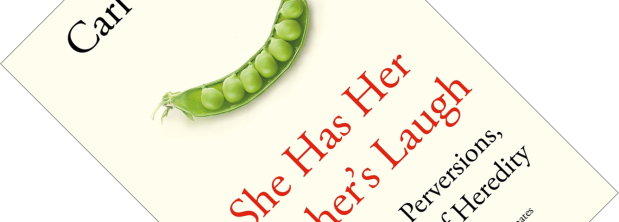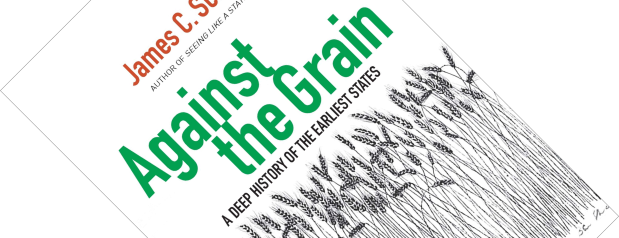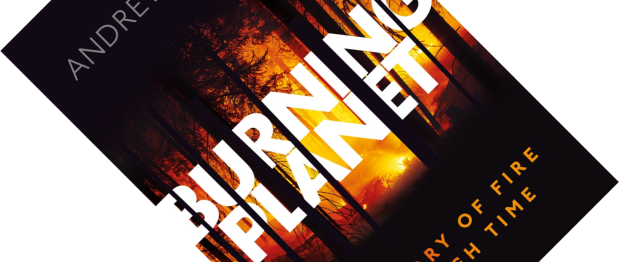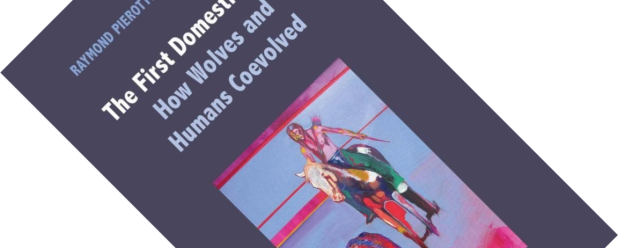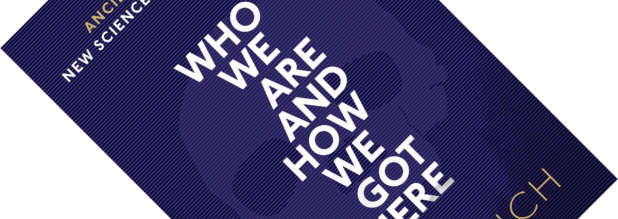Mammoths and sabertooth cats are but two icons of an assemblage of large animals, or megafauna, that disappeared between roughly 50,000 to 12,000 years ago. As with all mass extinctions, several explanations have been put forward, but one man and his idea take centre stage in these discussions: Paul S. Martin’s overkill hypothesis. In End of the Megafauna, palaeomammalogist Ross D.E. MacPhee carefully scrutinises this idea, weighs up the arguments for and against, and explains its enduring allure. To quote Huxley, is this another example of “the slaying of a beautiful hypothesis by an ugly fact”?
archaeology
Book review – When Humans Nearly Vanished: The Catastrophic Explosion of the Toba Volcano
When it comes to big volcanic eruptions, names such as Vesuvius, Mount Saint Helens, and Krakatau will ring a bell. But all of these are dwarfed by a far larger eruption that few outside of the science community will have heard of. Noted geologist, palaeontologist and author Donald R. Prothero here tells the story of the eruption of Mount Toba in what is nowadays Sumatra, Indonesia, some 74,000 years ago. An eruption so gargantuan that it almost wiped out the human race.
Book review – The Book of Humans: The Story of How We Became Us
Historically, humans have long considered themselves special compared to the natural world around them. It shows, for example, in old depictions where humans are at or near the top of a chain of lifeforms, with only angels and gods above us. Darwin caused a tremendous ruckus by saying we were descended from primates, and evolutionary biology has since had a long history of diminishing our anthropocentric worldview. With The Book of Humans, self-professed science geek Adam Rutherford has written an entertaining exploration of human evolution, showing that, amidst the teeming multitudes of lifeforms surrounding us, we are really not that special. And yet we are.
Book review – Dinner with Darwin: Food, Drink, and Evolution
Who could refuse such an invitation to dinner? In fourteen short chapters, Dinner with Darwin provides a smörgåsbord of topics on the role of food in human evolution and vice versa, many of which have been covered here in recent reviews. This is Jonathan Silvertown’s fourth book with the University of Chicago Press, and based on this, I would love to read his other books as well. Care to join me at the table?
Book review – She Has Her Mother’s Laugh: The Powers, Perversions, and Potential of Heredity
If Charles Darwin were to walk into my office today and ask me: “So, what did I miss?” I think I would sit the good man down with a copy of She Has Her Mother’s Laugh, telling him: “Here, this should get you up to speed”. Darwin struggled to explain how traits were being inherited from generation to generation. As New York Times columnist Carl Zimmer shows in this wide-ranging book, the story of heredity has turned out to be both diverse and wonderful, but has also been misappropriated to prop up some horrible ideologies.
Book review – Against the Grain: A Deep History of the Earliest States
History books tend to portray the transition of humans as hunter-gatherers to farmers – and with it the rise of cities, states and what we think of as civilization at large – as one of progress and improvement. But with Against the Grain: A Deep History of the Earliest States, political scientist and anthropologist James C. Scott challenges this narrative. That our switch to an existence as sedentary farmers impacted our health is something I was familiar with from palaeopathological findings, see for example Ungar’s Evolution’s Bite: A Story of Teeth, Diet, and Human Origins or Hassett’s Built on Bones: 15,000 Years of Urban Life and Death. But Scott tackles this subject from many angles, summarising accumulating archaeological and historical evidence to provide a fine counter-narrative.
Book review – Burning Planet: The Story of Fire Through Time
Fire is a force of nature that both fascinates and frightens. Large wildfires around the world seem to be on the rise and are a cause of concern due to the risk to lives and property. But fire also is an essential part of the workings of our planet that pre-dates humans by a long time. How long? For the last 40 years, geologist and palaeobotanist Andrew C. Scott has researched plant remains in the fossil record that have been preserved by fire in the form of fossil charcoal. In Burning Planet, he takes you on a 400-million-year deep-history tour of fire and how it has shaped our planet.
Book review – The First Domestication: How Wolves and Humans Coevolved
The evolution of domestic dogs from wolves is something that has been written about a great deal. Seeing dogs are one of our oldest domesticates and very close to our hearts, there has been an intense interest in this subject. The First Domestication provides a new perspective by turning to a rich vein of knowledge that is often ignored by contemporary Western scientists: traditional stories from tribal and indigenous peoples. If the sound of that makes you roll your eyes – something I am normally much inclined to do – you would be missing out on an incredibly well-written book that deserves your full attention.
Book review – Who We Are and How We Got Here: Ancient DNA and the New Science of the Human Past
You may have missed it, but archaeology is undergoing a silent revolution. The story of our deep history used to be based on skeletal remains, linguistics, and the analysis of objects and tools our ancestors left behind, but since about three years archaeologists have a new tool in their arsenal. The analysis of DNA from old bones, or ancient DNA. David Reich has been at the forefront of developing this technique and argues that it is rewriting most of what we thought we knew about the last 350,000 years or so of human history. Brace yourself, things are about to get complicated…
Book review – The Great Leveler: Violence and the History of Inequality from the Stone Age to the Twenty-First Century
Given that I predominantly review books on biology, you may wonder why a book on the history of economic inequality would be reviewed here. All I can say in my defence is that this biologist is nothing if not inquisitive.
Walter Scheidel’s The Great Leveler is a global deep history of inequality. Having taken a long, hard look at a huge range of historical evidence, Scheidel contends that only extreme violence and catastrophe have historically been able to bring more economic equality into the world.


